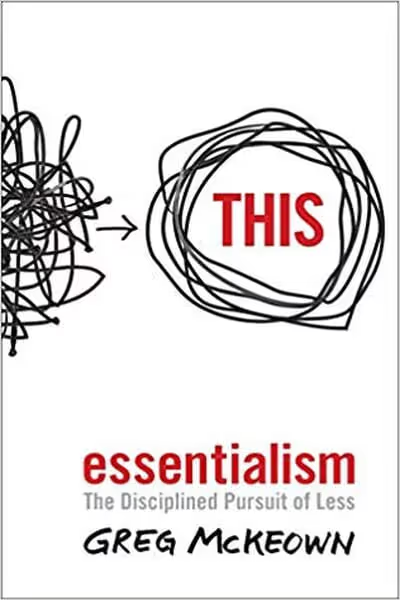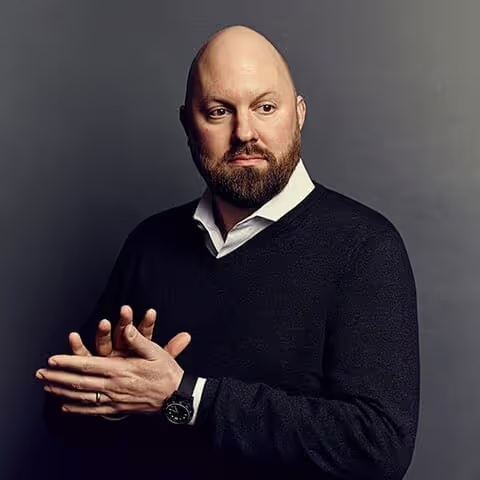
While listening to Matthew Walker's Ted Talk on sleep patterns, I came upon his book. Matthew Walker is a professor of neuroscience and psychology at the University of California, Berkeley, and the head of the Center for Human Sleep Science.
“Humans are not sleeping the way nature intended. The number of sleep bouts, the duration of sleep, and when sleep occurs has all been comprehensively distorted by modernity.” ― Matthew Walker
After graduating, I found myself pulling all-nighters, working on computers on a routine basis. If it wasn't an all-nighter, it was 1-2 am and up early to digest the news and pre-market futures before returning to work. Rinse and repeat. I felt like the days were blurring, and I wasn't as sharp as I usually am. Many cups of coffee and looming deadlines typically got me through the day until the headaches set in. This is around the time I began my sleep research.
Now that I've read Why We Sleep, I have concluded that a body actually does need sleep to function how it was designed and drinking exorbitant amounts of coffee every day is really just blocking the effects of the molecule adenosine, leading to reduced tiredness - which over the long term causes a nasty crash. In his book, he explains that inadequate sleep is heavily affecting your body even if you don't realize it at the time. Over an extended period, he claims there is even a link to Alzheimer's. So what can you do to sleep better?
A great resource I have found to answer these questions other than this book is Matteo Franceschetti and Alexandra Zatarain of EightSleep (this is a referral link to get $200 off). They have built a smart mattress designed to help you fall asleep faster and improve the quality of your sleep. They also speak frequently about sleep fitness, so definitely check them out if you are interested in that.
Do we really need 8 hours of sleep? It seems like it. In Matthew Walkers' words, “the shorter your sleep, the shorter your life. The leading causes of disease and death in developed nations—diseases that are crippling health-care systems, such as heart disease, obesity, dementia, diabetes, and cancer—all have recognized causal links to a lack of sleep" or in the words of David Sinclair, the author of Lifespan, "sleep is intimately tied to the longevity survival circuit. NAD - Sirt1 are the master regulators of circadian rhythms".
Why do we sleep? Sleep is an essential function that allows your body and mind to recharge. Researchers also believe that sleeping helps promote the removal of waste products from brain cells. A good night's sleep also helps the body stay healthy and avoid illnesses, increasing your immune system. Walker goes on to say, “routinely sleeping less than six or seven hours a night demolishes your immune system, more than doubling your risk of cancer.” The brain cannot operate correctly if it does not get adequate sleep.
What can you do to improve your sleep quality?
- The first thing I did was order Philips Hue smart bulbs. Normal LEDs emit a sleep corroding blue light. With my smart bulbs, I can change the light spectrum to a cool red which is the most conducive colour to promote sleep. I sometimes find it hard to read when my library is fully red in which case I make the lights a warm yellow.
- Temperature is also a big factor of sleep hygiene. If you are able to set your bedroom temperature to be around 65 degrees Fahrenheit or about 18.5 degrees Celsius. According to Eight Sleep's blog, your body temperature naturally decreases as you prepare to sleep because the brain waves slow down and you’re not active enough to generate heat the same way as you do throughout the day. Temperatures that aren’t comfortable enough to sleep in will keep you alert (and awake) for longer and prevent you from entering deep sleep. Eight Sleep's Pod Pro does this automatically throughout the night.
- Limiting alcohol, especially before bed will increase HRV (Heart Rate Variability) and REM (rapid-eye-movement) sleep. Most people assume that drinking a glass of alcohol before bed as a night cap can be used as a sleep aid. By doing so you may be able to make yourself drowsy and fall asleep faster but your sleep quality is drastically declined. Your body has to work extra hard processing the alcohol which is one reason most people wake up the next morning feeling drained.
- Depending on your line of work, a mid-day nap around 20-30 minutes can help improve your creativity and coronary health. Studies show by doing this your risk of a heart attack is reduced by half later in life.
- Coffee is a fantastic invention but can cause issues with most people's sleep. My strategy is to reduce my intake of caffeine after 2:00 p.m. After then, if I want a coffee after dinner I drink decaf. Decaf isn't completely decaffeinated but it is reduced to around 2 mg instead of 98 mg in a typical cup of coffee.
- Turning off screens 2-3 hours before bed can help put you to sleep. The human body runs on a 24-hour sleep-wake cycle or circadian rhythm. When the sun rises your body automatically produces cortisol, a hormone that wakes you up. As the sunsets, the body releases another hormone called melatonin that produces sleep. The problem with screens is they produce blue light which delays the natural production of melatonin reducing the feeling of sleepiness.
Overall I thoroughly enjoyed this book. Walker taught me a lot about something we as humans do without thinking much about it. I'll be reading and studying sleep and longevity for many years to come. I hope you enjoy it as much as I did.
“Sleep is the single most effective thing we can do to reset our brain and body health each day - Mother Nature's best effort yet at contra-death.” ― Matthew Walker
Most likely, you're not getting as much sleep as you ought to. More people than they think are chronically sleep deprived, and the consequences are severe—reduced productivity and happiness as well as a higher chance of developing a number of diseases. Based on studies from inside and outside of his Center for Human Sleep Science, "sleep diplomat" Matthew Walker, Ph.D., unravels some of the secrets of sleep in his book Why We Sleep.
The best bridge between despair and hope is a good night’s sleep.
“Why We Sleep is an important and fascinating book…Walker taught me a lot about this basic activity that every person on Earth needs. I suspect his book will do the same for you.” —Bill Gates
A New York Times bestseller and international sensation, this “stimulating and important book” (Financial Times) is a fascinating dive into the purpose and power of slumber.
Sleep is one of the most important but least understood aspects of our life, wellness, and longevity. Until very recently, science had no answer to the question of why we sleep, or what good it served, or why we suffer such devastating health consequences when we don't sleep. Compared to the other basic drives in life—eating, drinking, and reproducing—the purpose of sleep remained elusive.
An explosion of scientific discoveries in the last twenty years has shed new light on this fundamental aspect of our lives. Now, preeminent neuroscientist and sleep expert Matthew Walker gives us a new understanding of the vital importance of sleep and dreaming. Within the brain, sleep enriches our ability to learn, memorize, and make logical decisions. It recalibrates our emotions, restocks our immune system, fine-tunes our metabolism, and regulates our appetite. Dreaming mollifies painful memories and creates a virtual reality space in which the brain melds past and present knowledge to inspire creativity.
Walker answers important questions about sleep: how do caffeine and alcohol affect sleep? What really happens during REM sleep? Why do our sleep patterns change across a lifetime? How do common sleep aids affect us and can they do long-term damage? Charting cutting-edge scientific breakthroughs, and synthesizing decades of research and clinical practice, Walker explains how we can harness sleep to improve learning, mood, and energy levels; regulate hormones; prevent cancer, Alzheimer’s, and diabetes; slow the effects of aging; increase longevity; enhance the education and lifespan of our children, and boost the efficiency, success, and productivity of our businesses. Clear-eyed, fascinating, and accessible, Why We Sleep is a crucial and illuminating book.
Since the beginning of time, ageing has been accepted as a natural process of life. David Sinclair, a biologist and geneticist, is of the opposite opinion. He has devoted his life to finding a cure for old age.
Sinclair is a professor of genetics and co-director of Harvard University's Paul F. Glenn Center for Biology of Aging Research. He contends that learning to combat the effects of ageing is not only feasible but also unavoidable. Our maximum lifetime and years of health will expand as a result of new medications and technology, and someday humans won't have a maximum lifespan—we'll remain youthful and healthy forever.
Sinclair explores the causes of ageing, ways to prevent it, and ways to maybe build a future in which no one has to pass away from old age.
As a species, we are living much longer than ever. But not much better. Not at all. Over the past century we have gained additional years, but not additional life—not life worth living anyway.
It’s a seemingly undeniable truth that aging is inevitable. But what if everything we’ve been taught to believe about aging is wrong? What if we could choose our lifespan?
In this groundbreaking book, Dr. David Sinclair, leading world authority on genetics and longevity, reveals a bold new theory for why we age. As he writes: “Aging is a disease, and that disease is treatable.”
This book takes us to the frontlines of research many from Dr. David Sinclair’s own lab at Harvard—that demonstrate how we can slow down, or even reverse, aging. The key is activating newly discovered vitality genes, the descendants of an ancient genetic survival circuit that is both the cause of aging and the key to reversing it.









.avif)
.avif)

.webp)








































